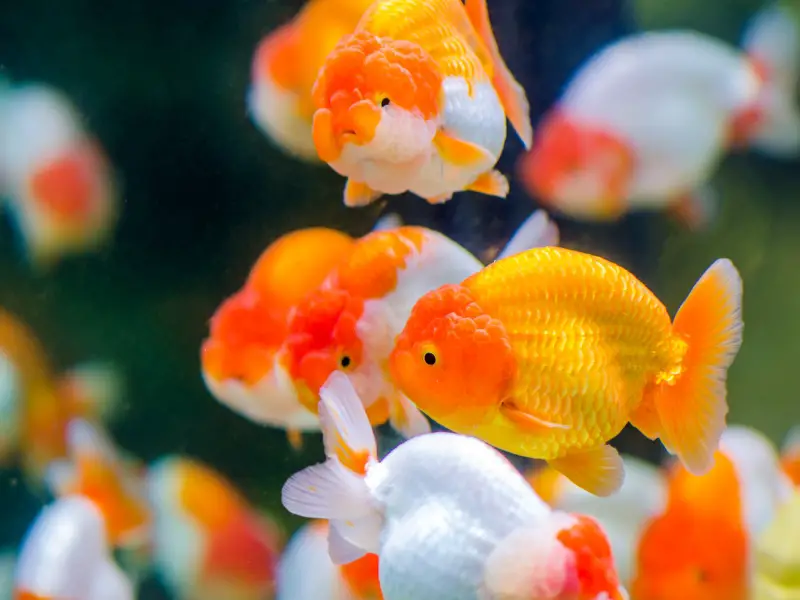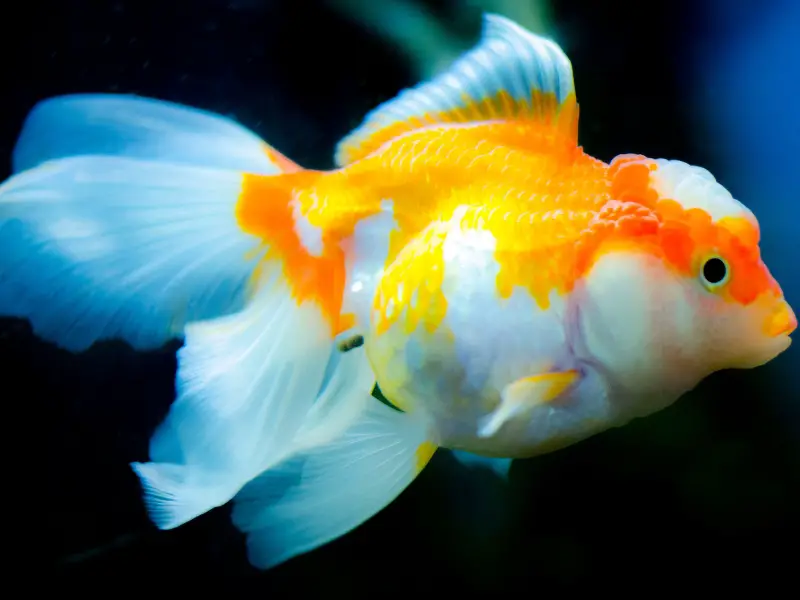Goldfish are one of the most popular fish kept in aquariums due to their vibrant colors and easy-to-care-for nature. However, many owners may wonder how long their goldfish can go without food. This is an important question to consider, as it can impact the health and well-being of the fish.
In general, goldfish can go without food for up to two weeks. However, this is not recommended and can lead to health problems such as malnutrition and weakened immune systems. It is important to note that the amount of time a goldfish can go without food can vary depending on factors such as age, size, and overall health.
Additionally, the temperature of the water can also impact a goldfish’s metabolism and ability to go without food.
Goldfish Dietary Needs

Goldfish are a popular species of freshwater fish that are often kept as pets in aquariums. One of the most important aspects of caring for goldfish is providing them with proper nutrition. Goldfish are omnivores, which means they eat both plant and animal matter. In order to thrive, they require a balanced diet that includes a variety of different foods.
A goldfish’s diet should consist of both commercial fish food and fresh vegetables. Commercial fish food is available in a variety of forms, including flakes, pellets, and freeze-dried options. It is important to choose a high-quality fish food that is specifically formulated for goldfish. This will ensure that the fish receive all of the necessary nutrients they need to stay healthy.
In addition to commercial fish food, goldfish also require fresh vegetables in their diet. Vegetables such as peas, lettuce, and spinach are all great options. These vegetables should be blanched before feeding to the goldfish to make them easier to digest. It is important to avoid feeding goldfish too much vegetable matter, as this can lead to digestive problems.
Overall, goldfish require a balanced diet that includes both commercial fish food and fresh vegetables. It is important to provide them with the proper nutrition they need to stay healthy and thrive in their aquarium environment. By following these dietary guidelines, goldfish owners can ensure that their pets live long and healthy lives.
Impact of Starvation on Goldfish
Goldfish are known for their ability to survive in a wide range of conditions. However, they cannot survive indefinitely without food. Starvation can have a significant impact on the health and well-being of goldfish.
When goldfish are deprived of food, their metabolism slows down, and they begin to use their stored energy reserves. As time goes on, these reserves are depleted, and the goldfish becomes weaker and more vulnerable to disease.
One of the most noticeable effects of starvation on goldfish is weight loss. Goldfish that are not fed for an extended period will begin to lose weight rapidly. This can be particularly concerning if the goldfish is already underweight or malnourished.
In addition to weight loss, goldfish that are starved may also experience a weakened immune system. This can make them more susceptible to bacterial and fungal infections, which can be difficult to treat.
Overall, it is essential to ensure that goldfish are fed regularly to maintain their health and well-being. While they can survive for short periods without food, prolonged starvation can have severe consequences.
Factors Influencing Food Absence Duration

Goldfish Age
The age of the goldfish plays a significant role in determining how long they can go without food. Younger goldfish have a higher metabolic rate and require more frequent feedings. Therefore, they cannot go as long without food as older goldfish. Adult goldfish can survive for longer periods without food as they have a slower metabolism.
Goldfish Health
The health of the goldfish is another factor that influences how long they can go without food. Sick or weak goldfish cannot survive as long without food as healthy ones. If a goldfish is not feeling well, it is essential to feed it regularly to help it recover.
Water Temperature
The water temperature also affects how long goldfish can go without food. Goldfish can survive longer without food in cooler water than in warmer water. In colder temperatures, their metabolism slows down, and they require less food to sustain themselves. Conversely, in warmer temperatures, their metabolism speeds up, and they require more frequent feedings.
Goldfish Variety
Different varieties of goldfish have different dietary requirements and, therefore, can go without food for varying lengths of time. For example, some varieties, such as the common goldfish, can survive for longer periods without food than others, such as the fancy goldfish. This is because the fancy goldfish have a more specialized diet and require more frequent feedings.
In conclusion, several factors influence how long goldfish can go without food. Age, health, water temperature, and variety are all essential considerations when determining how long a goldfish can survive without food.
Signs of Malnutrition in Goldfish
Goldfish are hardy fish that can survive in a variety of conditions. However, they do require proper nutrition to stay healthy. Malnutrition in goldfish can lead to a variety of health problems, including stunted growth, weakened immune system, and even death.
There are several signs that a goldfish is suffering from malnutrition. These include:
- Loss of color: Goldfish that are malnourished may lose their bright colors and become dull and faded.
- Lethargy: A malnourished goldfish may become lethargic and spend most of its time at the bottom of the tank.
- Weight loss: A goldfish that is not getting enough food may lose weight and become thin and emaciated.
- Reduced activity: Malnourished goldfish may become less active and swim less than usual.
- Abnormal behavior: Goldfish that are not getting enough food may exhibit abnormal behavior, such as excessive fin biting or aggression towards other fish.
If a goldfish is showing signs of malnutrition, it is important to take action to correct the problem. This may involve increasing the amount and frequency of feedings, changing the type of food being offered, or adding supplements to the diet.
In conclusion, malnutrition in goldfish can have serious consequences for their health and well-being. By monitoring their behavior and appearance, fish owners can identify signs of malnutrition and take steps to correct the problem before it becomes too severe.
Conclusion
In summary, goldfish can survive for a surprisingly long time without food. However, it is important to note that this is not a sustainable or healthy practice for the fish. While they may be able to survive for weeks or even months without food, their health will inevitably suffer.
Goldfish are hardy creatures that can adapt to a variety of environments, but they still require proper care and attention to thrive. Providing them with a balanced diet and regular feeding schedule is essential for their well-being.
If you are planning to be away from your goldfish for an extended period of time, there are several options to ensure their continued health. Automatic feeders, feeding blocks, and arranging for a friend or pet sitter to care for them are all viable solutions.
Overall, it is important to remember that goldfish, like all living creatures, require proper care and attention to live long and healthy lives. While they may be able to survive without food for a while, it is not a practice that should be relied upon or encouraged.
Related Articles: